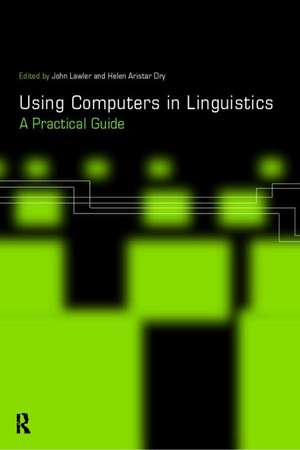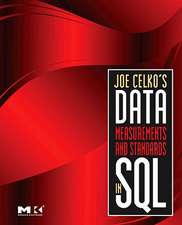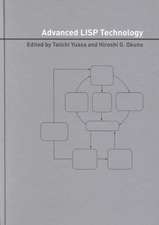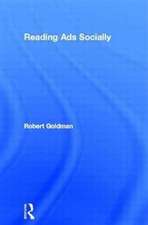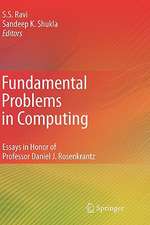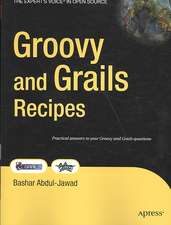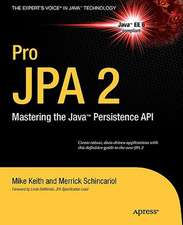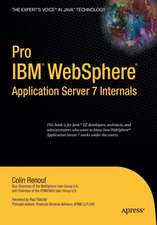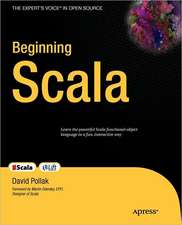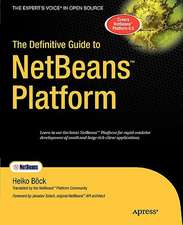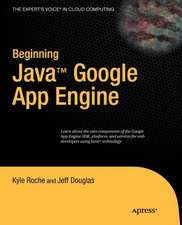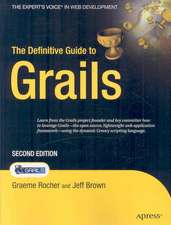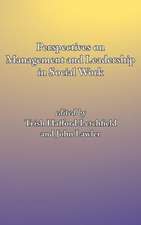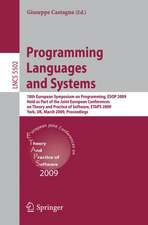Using Computers in Linguistics: A Practical Guide
Editat de Helen Aristar Dry, John Lawleren Limba Engleză Paperback – 9 apr 1998
Using Computers in Linguistics provides a non-technical introduction to recent developments in linguistic computing and offers specific guidance to the linguist or language professional who wishes to take advantage of them.
Divided into eight chapters, each of the expert contributors focus on a different aspect of the interaction of computing and linguistics looking either at computational resources: the Internet, software for fieldwork and teaching linguistics, Unix utilities, or at computational developments: the availability of electronic texts, new methodologies in natural language processing, the development of the CELLAR computing environment for linguistic analysis.
| Toate formatele și edițiile | Preț | Express |
|---|---|---|
| Paperback (1) | 447.51 lei 6-8 săpt. | |
| Taylor & Francis – 9 apr 1998 | 447.51 lei 6-8 săpt. | |
| Hardback (1) | 1008.17 lei 6-8 săpt. | |
| Taylor & Francis – 9 apr 1998 | 1008.17 lei 6-8 săpt. |
Preț: 447.51 lei
Nou
Puncte Express: 671
Preț estimativ în valută:
85.65€ • 89.08$ • 71.78£
85.65€ • 89.08$ • 71.78£
Carte tipărită la comandă
Livrare economică 14-28 martie
Preluare comenzi: 021 569.72.76
Specificații
ISBN-13: 9780415167932
ISBN-10: 0415167930
Pagini: 318
Ilustrații: 1
Dimensiuni: 152 x 229 x 17 mm
Greutate: 0.41 kg
Ediția:New.
Editura: Taylor & Francis
Colecția Routledge
Locul publicării:Oxford, United Kingdom
ISBN-10: 0415167930
Pagini: 318
Ilustrații: 1
Dimensiuni: 152 x 229 x 17 mm
Greutate: 0.41 kg
Ediția:New.
Editura: Taylor & Francis
Colecția Routledge
Locul publicării:Oxford, United Kingdom
Public țintă
Postgraduate and UndergraduateNotă biografică
John Lawler is Associate Professor of Linguistics at the University of Michigan and Director of its undergraduate program in Linguistics. Helen Aristar Dry is Professor of Linguistics at Eastern Michigan University, and is co-founder and moderator of The LINGUIST List, a 9000-member electronic discussion forum for academic linguists.
Cuprins
Introduction 1 The nature of linguistic data and the requirements of a computing environment for linguistic research 2 The Internet: an introduction 3 Education 4 Textual databases 5 The Unix™ language family 6 Software for doing field linguistics 7 Language understanding and the emerging alignment of linguistics and natural language processing 8 Theoretical and computational linguistics: toward a mutual understanding
Descriere
Provides a non-technical introduction to recent developments in linguistic computing and offers specific guidance to the linguist or language professional who wishes to take advantage of them.
